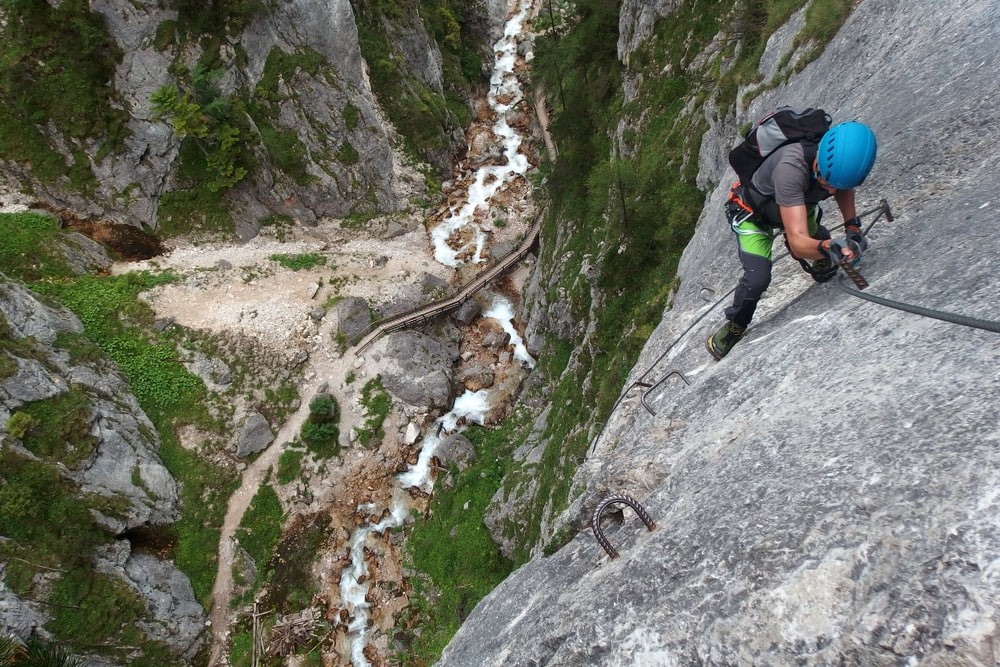“Whether you think you can, or you think you can’t—you’re right.”
–Henry Ford
In 1987 psychologist Susan Jeffers wrote her bestselling book Feel the Fear and Do It Anyway, which sold millions of copies.
Many successful entrepreneurs and business leaders rank this book as the single most helpful book they read on their journey to success.
Without the ability to understand the biology of fear and take action anyway, we are destined to live small lives, and will never reach our true potential.
Today, we will draw upon key concepts from Dr. Jeffers work, and learn strategies for taking action despite our fears.
Borneo
The best place to learn about exotic dive locations is from well-traveled divers.
One destination was mentioned repeatedly as having near-mythical status—Palau Sipadan—a remote island off the coast of northeast Borneo.
After hearing about it, I knew I had to go.
Borneo also happened to be the only remaining place in the world to see Orangutans in the wild, so I did a little research and planned to stay in some rustic shelters in the jungle for several days—in hopes of seeing the elusive apes.
This trip was my reward for completing graduate school—taking along my best friend and soon-to-be wife.
When I began reading about Borneo, I discovered they had some pretty exotic diseases to go along with their exotic beaches—things I had never heard of like Leptospirosis, Japanese Encephalitis, and Dengue (i.e. “Bone Break”) Fever.
They also had some wildlife that didn’t look as cuddly as the furry orange orangutans I had seen on the internet—things like spitting cobras and the reticulated python—the longest snake in the world. I hadn’t run into those in California.
There were a lot of good reasons not to go. I didn’t speak the language, there were a lot of real dangers, and getting there was a difficult multi-day journey that combined long flights, bus rides, and small boats on high seas.
I had to feel the fear and do it anyway—knowing that the memories would be worth it.
My core value of Adventure had to overcome all the reasons my brain created for not going.
And we had an incredible trip.
We slept on an oil rig that had been converted into a dive hotel in the middle of the ocean; we ate fresh caught barbequed seafood every night; and yes, we did get to see those shy Orangutans.
See the images of SeaVentures Dive Hotel and Sipadan Island below:

Palau Sipadan

SeaVentures Dive Hotel
The greatest fear
Let’s look at another example that isn’t physically dangerous, but generates a great deal of fear for most people—public speaking.
Public speaking is consistently ranked as one of the top fears that people have. In fact, some people say they fear it even more than dying.
I knew I wanted to get better at speaking, so I took every opportunity to teach workshops or do lectures.
But almost every time, I felt like I actually was dying—I would sweat, my heart would race, and I couldn’t think straight.
I nearly gave up on my dream more times than I can count because I simply hated the feeling. After I taught a class or did a presentation, I would critique everything I thought I had done poorly.
Sometimes it would take me days to recover from mentally pummeling myself after a workshop.
This happens because our brains often can’t tell the difference between a physical threat and an emotional one, so the fear of humiliating ourselves feels as real as being chased by a tiger.
In order to become a fearless speaker, I had to be a fearful speaker for a long time.
Your brain has one primary job—to protect you from threats in your environment (emotional and physical). Your brain just wants to keep you alive.
Not very helpful when pursuing our dreams, since that process is inherently scary.
The root of all fear
In her work and decades of study on fear, Dr. Susan Jeffers found that beneath all fears lies the belief that we just won’t be able to handle what happens to us.
Whether you are afraid of contracting a disease, getting rejected for a date, failing at new business venture, or losing a family member—our deepest fear is that we won’t be able to handle it.
For this reason, she recommended her clients memorize the following message—Whatever happens, I’ll handle it.
Since I value spiritual tools as well as psychological, I find it helpful to put a spiritual twist on it—believing that God will help me get through any situation, no matter how bad. The Bible uses the words “do not fear” hundreds of times, so I find it really helpful to memorize these scriptures as mantras.
Clearly, one of our main purposes in this life is to learn to act courageously in spite of our fears. But it takes a lot of practice.
“Without courage, all other virtues lose their meaning.” —Winston Churchill
Turn information into action
Here are 9 truths about fear that will help you feel the fear and do it anyway:
- Fear will never go away. As long as you are alive, you will feel fear. And the more you leave your comfort zone, fear will be there to meet you every time.
- Everyone feels fear. Everyone fears something. You are not alone.
- Change or new situations almost always generate fear. Your brain likes safety, predictability, and routine. Learn to anticipate this yourself, and use this knowledge to generate compassion for others when they face change.
- Fear grows with inaction, and action cures fear. Psychologists have discovered that we often build up fears in our mind to be worse than the actual thing itself. The longer we avoid the fear, the more it grows. This is why exposure therapy (gradually exposing yourself to the thing you fear) is the number one treatment for phobias. Pushing through fear is usually less frightening than living in a constant state of anxiety and helplessness.
- Confidence only comes from doing things we are afraid of. If we want our children to become capable adults, we must teach them this valuable life lesson. We must model this first in our own lives if we want to avoid having our children develop too many fears that keep them living on defense or dreaming small dreams.
- Living in fear isn’t living. Research shows that people regret the things they never tried more than the things they failed at. Don’t finish your life with a list of things you wish you would have tried.
- Your emotions will sometimes give you faulty information. Emotions are one important source of information, but just because we feel something doesn’t make it true. We often use emotional reasoning—assuming that since we feel something strongly, it must be true. But things like hormones, bad weather, or even indigestion will affect our emotions in powerful ways.
- It is easier to act your way into a feeling than feel your way into an action. This was a core concept I learned in graduate school. If we wait for the right feeling, we probably won’t accomplish much. High performers pursue their goals every day, whether they feel like it or not.
- When you encounter fear, remind yourself of your life purpose, your “why”, and your core values. When you feel paralyzed by fear, research has shown that tapping into core values, your life purpose, and the reason why something is important—can be extremely helpful in overcoming fear.
Whether you are a leader, an entrepreneur, or a parent—you need the ability to push past fear because your team and your family will follow your example.
Have a great weekend!
Parker
Suggested Resources
- Feel the Fear and Do It Anyway by Susan Jeffers, Ph.D.




